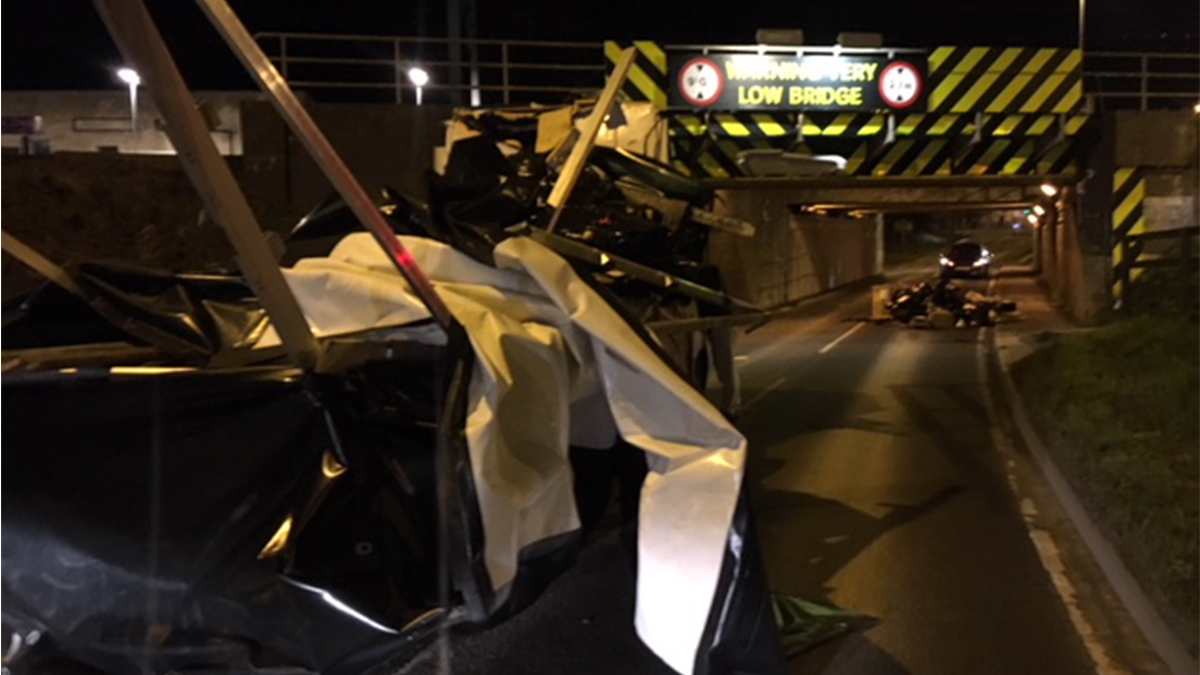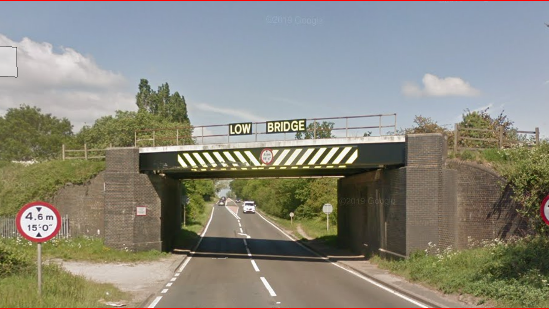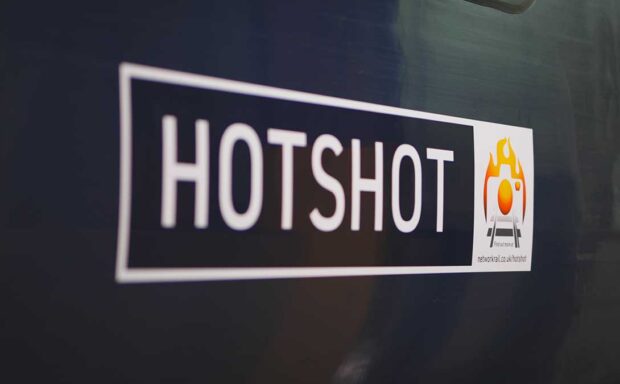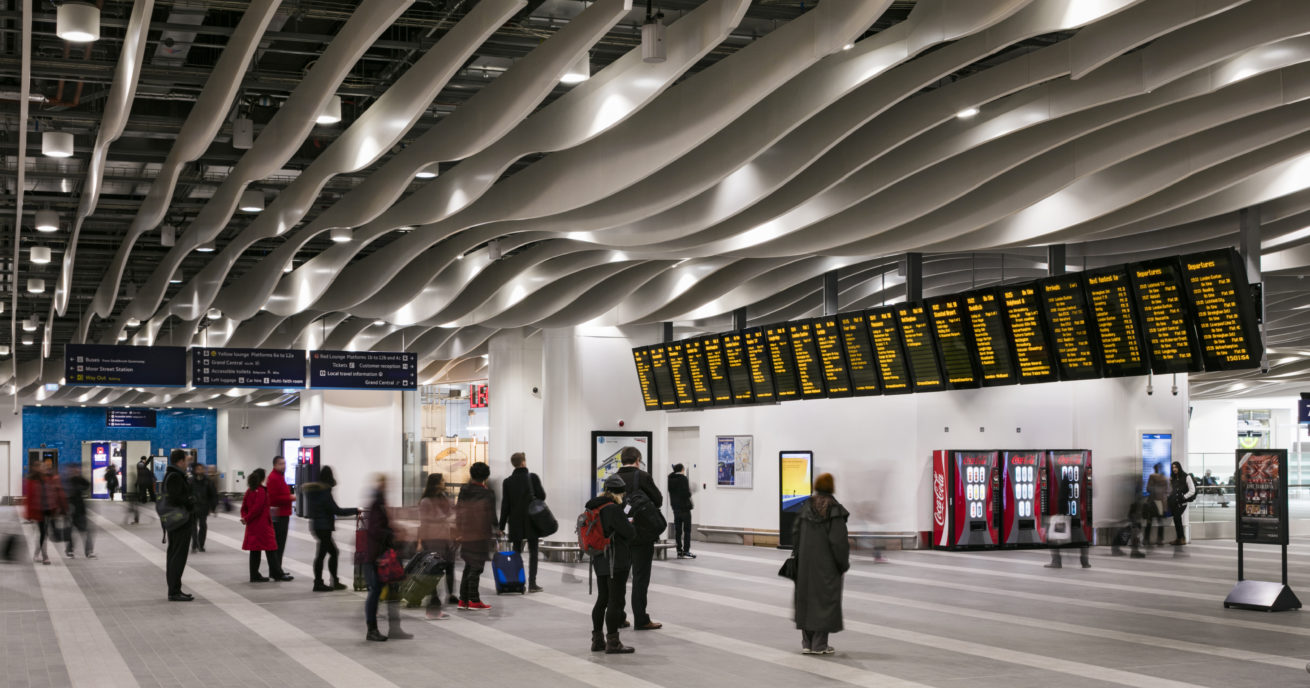We’re urging lorry drivers to ‘Wise Up, Size Up’ by knowing the height of their vehicles and choosing suitable routes before heading out on journeys. This will help us avoid countless minutes of delays to your rail journeys.
Bridge strikes and delays
Incidents involving Heavy Goods Vehicles – or lorries – colliding with bridges have caused over 100 days – or 150,000 minutes – of delays to your rail journeys last year. More than 1,532 bridges were struck by lorries between 1 April 2023 to 31 March 2024 – that’s one every six hours.
This costs our rail industry around £20m in delays, cancellations and repairs.
Stuntney Road bridge in Ely, Cambridgeshire has the unflattering title of ‘Britain’s most bashed bridge’ this year – with 18 recorded incidents over the past year.
Next is a tie between Stonea Road bridge near Manea, Cambridgeshire, and Lower Downs Road bridge in Wimbledon – both with 17 incidents apiece.
Wise Up, Size Up
That’s why we’re working closely with industry partners to tackle bridge strikes with our ongoing Wise Up, Size Up campaign.
We urge haulage operators and lorry drivers to ‘Wise Up, Size Up’ by checking the height of their vehicles and planning their route in advance to avoid low bridges.
We also have a team of bridge strike champions covering each route across the country. These champions help raise awareness by visiting local haulage companies.
And our efforts are paying off.
The last two years has seen a decrease in the total number of bridge strike incidents recorded on our railway. The number of incidents lowered by 4% in the last year alone.
Improvements in delay minutes
We also want to make improvements at a local level too.
Stonea may be second on the list of recorded incidents between 2023 and 2024, but its bridge strike record has improved in recent years. The number of bridge strikes at Stonea was 11% lower last year compared to the year before. This led to a 65% decrease in delay minutes to your rail journeys last year. The area recorded 35 delay minutes between 2023 to 2024 compared to 100 delay minutes between 2022 and 2023.
In February 2021 our engineers repaired the Cambridgeshire bridge, installing a new protection beam. The new beam is designed to withstand future bridge strikes, making it stronger than before. This extra protection helps minimise disruption to rail and road traffic as a result of future strikes.
Cambridgeshire County Council also updated the road signage with its new height of two metres. That’s 10cm lower than before because of the new protection beam.
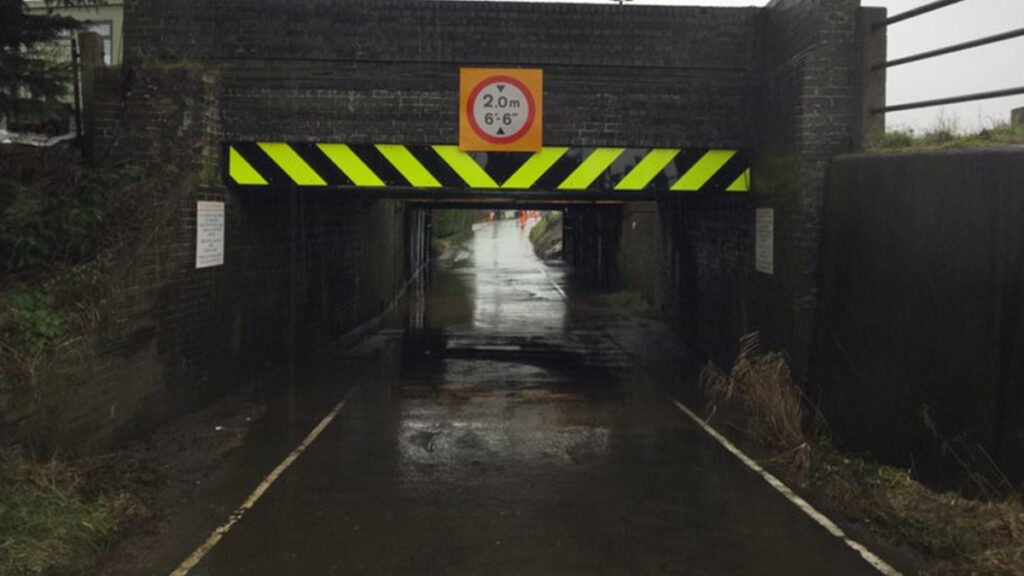
Martin Frobisher, group safety and engineering director at Network Rail, said: “Every time a vehicle hits a bridge it can serious safety issues for road and rail users. To compound matters, these incidents can delay tens of thousands of passengers while we inspect the bridge and repair any damage – creating cost from public funds which should be used upgrading and improving our network.
“We’ve done a lot of work with transport partners to tackle bridge strikes and it’s encouraging to see this is paying off with a general downward trend in the number of incidents. But with a strike every six hours there’s still much to do and we urge operators and drivers to properly plan their routes, know the height of their vehicles and be vigilant for road signs showing the height of bridges. We will report those who don’t to the Traffic Commissioners and Network Rail always looks to recover the entire repair and delay costs from the driver and the operator.”
